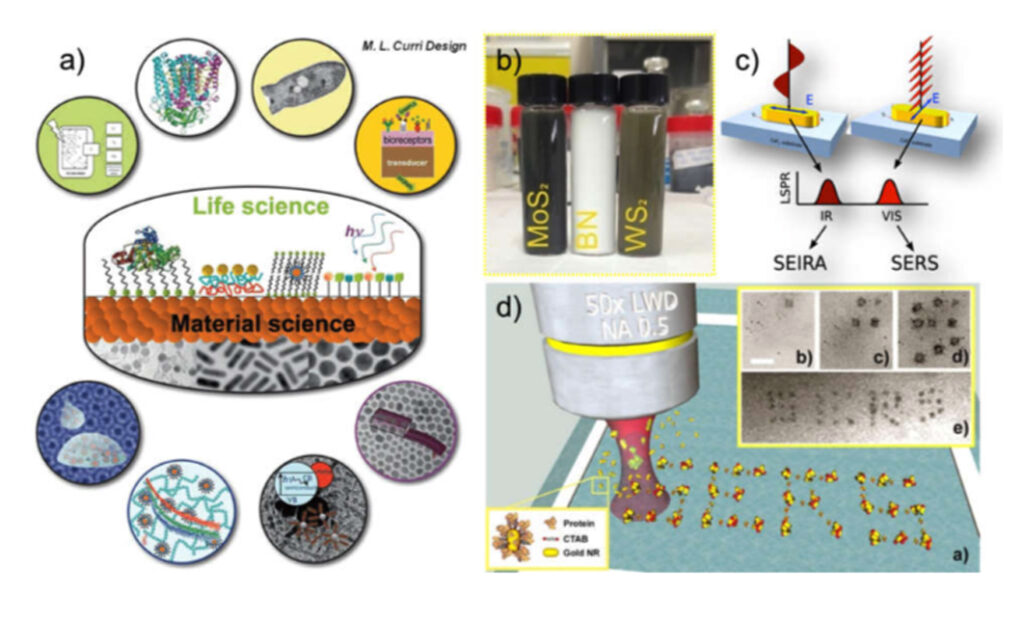
The issues related to nanosciences and nanotechnologies are transversal to various institutes of the DSCTM and DSFTM. Also in IPCF, various groups deal with nanomaterials, nano-optics and nanophotonics, nanospectroscopy, nanomedicine, making the “nano” theme and its multiple applications spread across the three sites. The Bari office has a key role on these issues for its skills in the design, preparation and study of hierarchically organized systems starting from inorganic and bio-organic blocks. The nanostructures obtained can be complex and functional, manufactured on unconventional surfaces to integrate the nanoscale and the macroscale based on the application to be achieved. The scientific interests of IPCF-Bari cover research areas ranging from living soft matter (biomaterials) to materials science (methods of synthesis of semiconductor nanoparticles and oxides, spectroscopic, structural, morphological and photoelectrochemical characterization), to hybrid systems and interfaces for photochemistry.
The Messina headquarters sees various groups engaged in frontier issues for the production of nanomaterials for laser ablation (semiconductors and metals), for exfoliation in the liquid phase (graphene, 2D materials), for sensor applications (field-enhanced spectroscopies, Raman , SERS, TERS, thermoplasmonics), for nanophotonics (optical trapping and manipulation, light-mediated aggregation) and for the characterization of micro and nanoplastics in marine environments.
Finally, the Pisa office has important skills in the design and synthesis of new materials (polymeric, nanocomposites and hybrids), in nanostructured membranes and in nanoscopic dielectric characterization.
Labs involved in these research activities
- Laboratory of Electronic Microscopy
- Laboratory of Nanomaterials and Nanocomposites
Laboratory for nanoscale electrical and electromechanical characterization
- Laboratory of Optical and Atomic Force Microscopy
- Laboratory of Production and Characterization of Biomaterials from Macro to Nanoscale
- Nanosoft Lab
- PLD Lab
